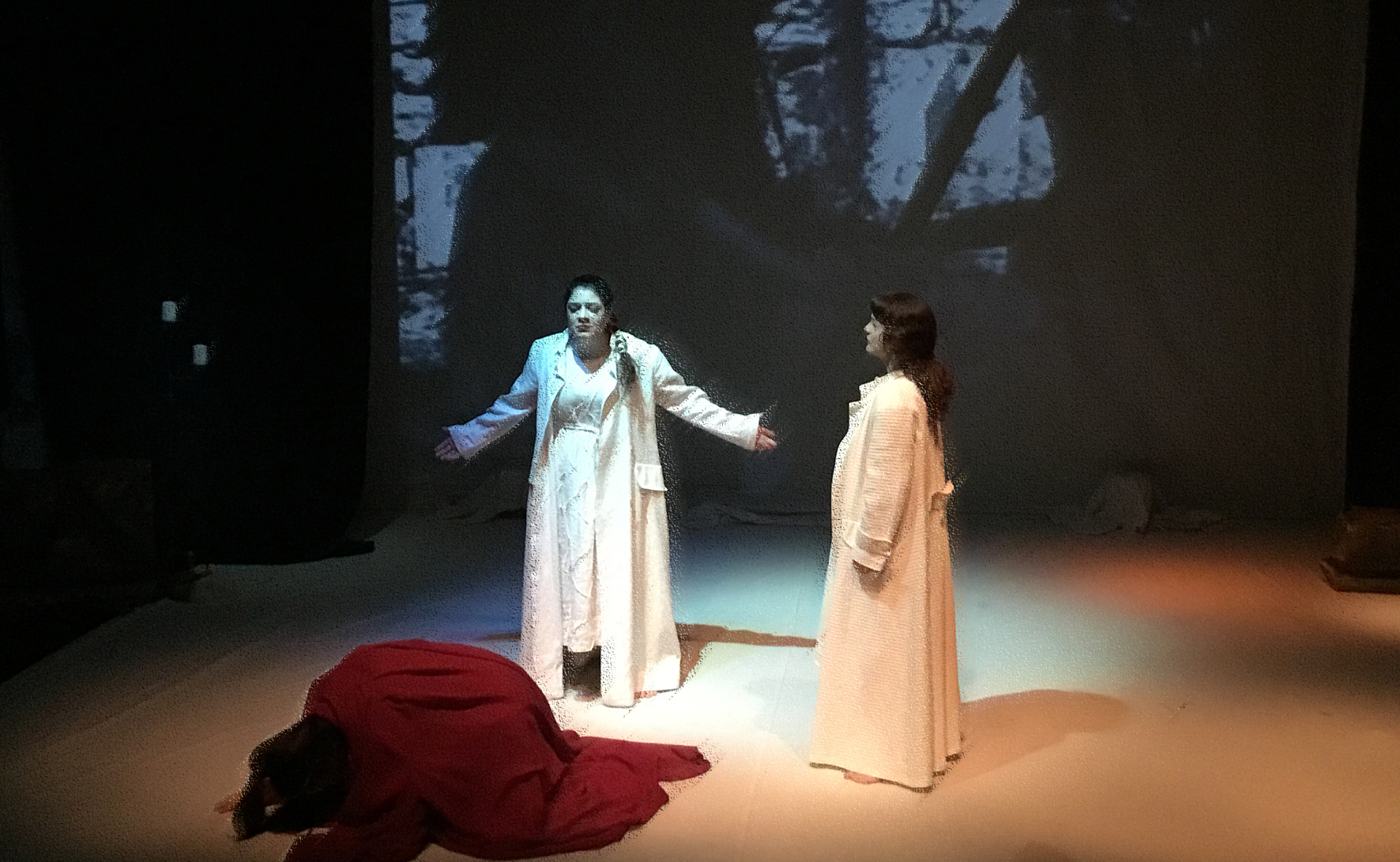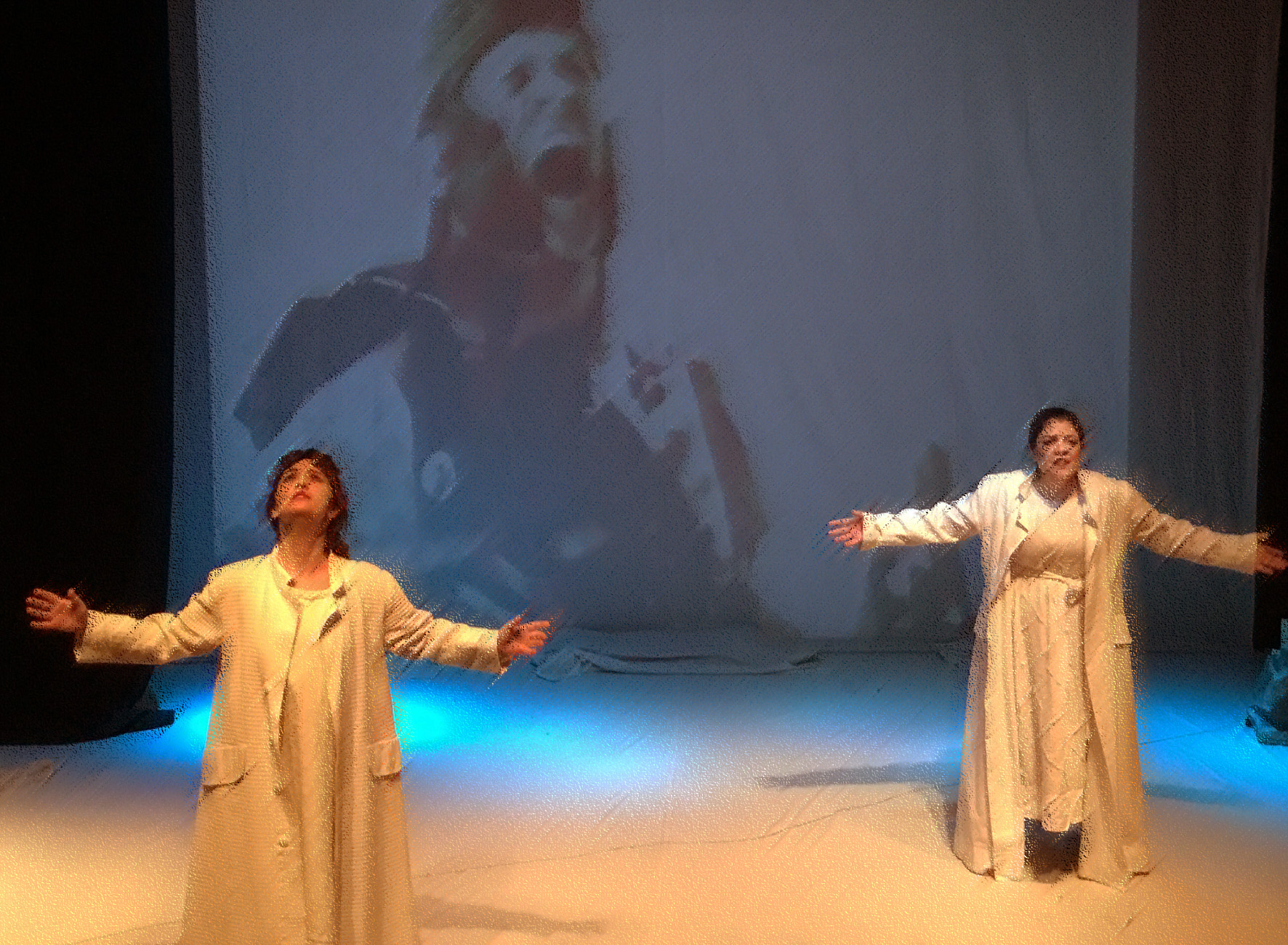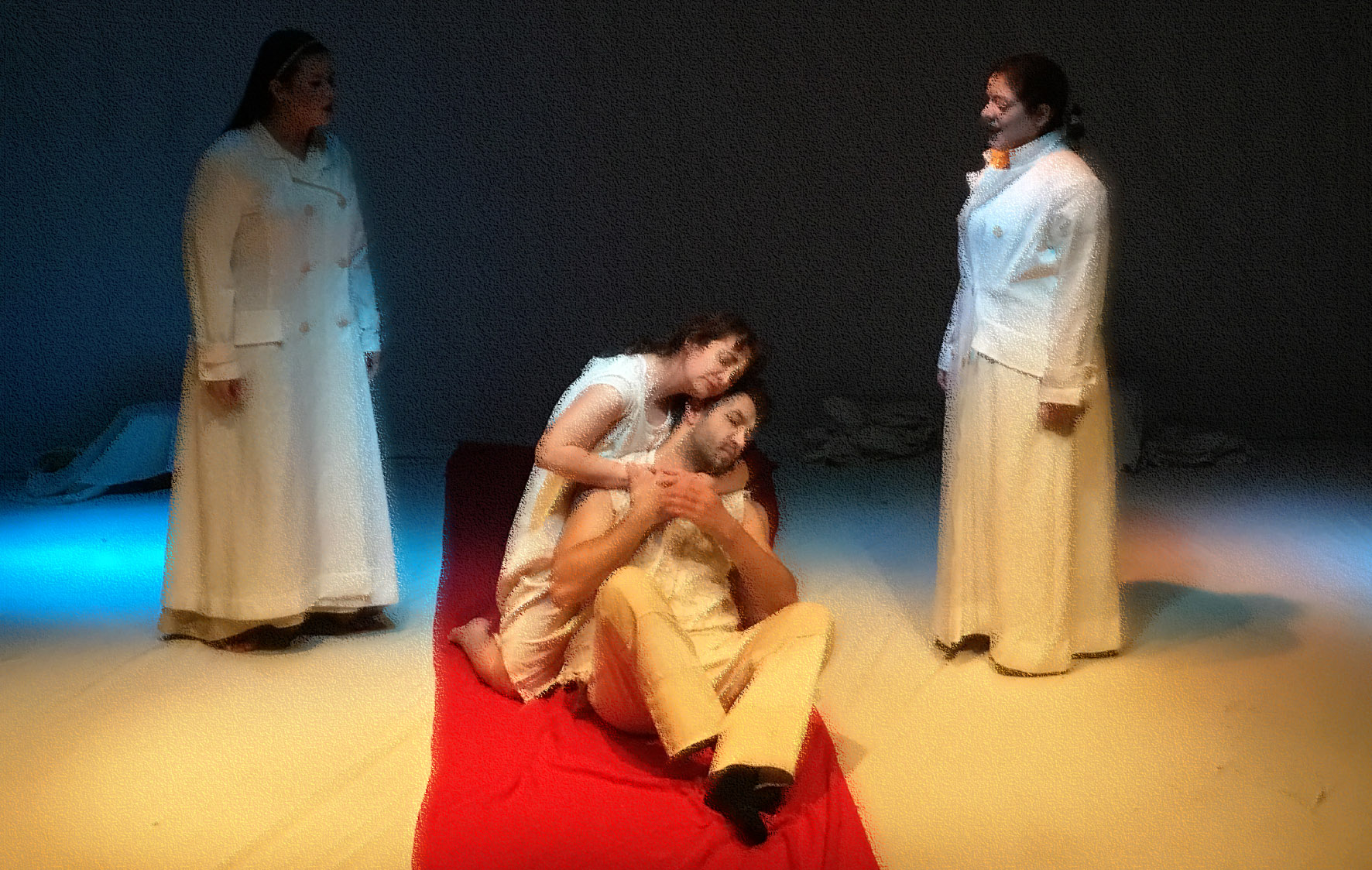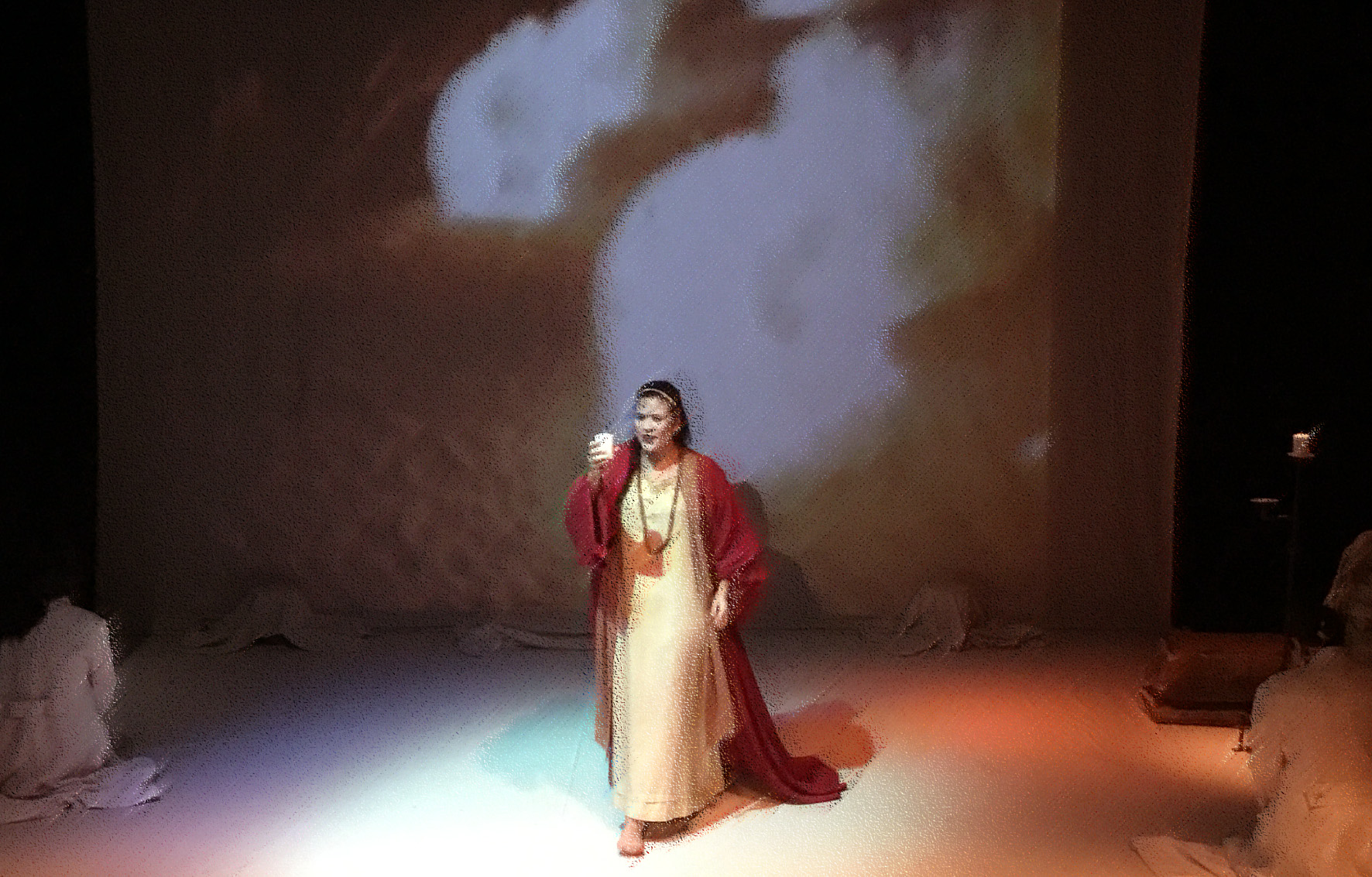ANCIENT PATHOS
for student and visitor groups
The goal of these productions and activities is to introduce English speaking students and other tourist groups to Ancient Greek Theatre, history, mythology and tradition. Our suggestion is extremely original and your visitors enjoy it as such. We can have event (performance or workshop) every day for group,s if you phone us on time in order to organize. Our performances and workshops are full in English and present in our full equipment theater by our professional collaborators.
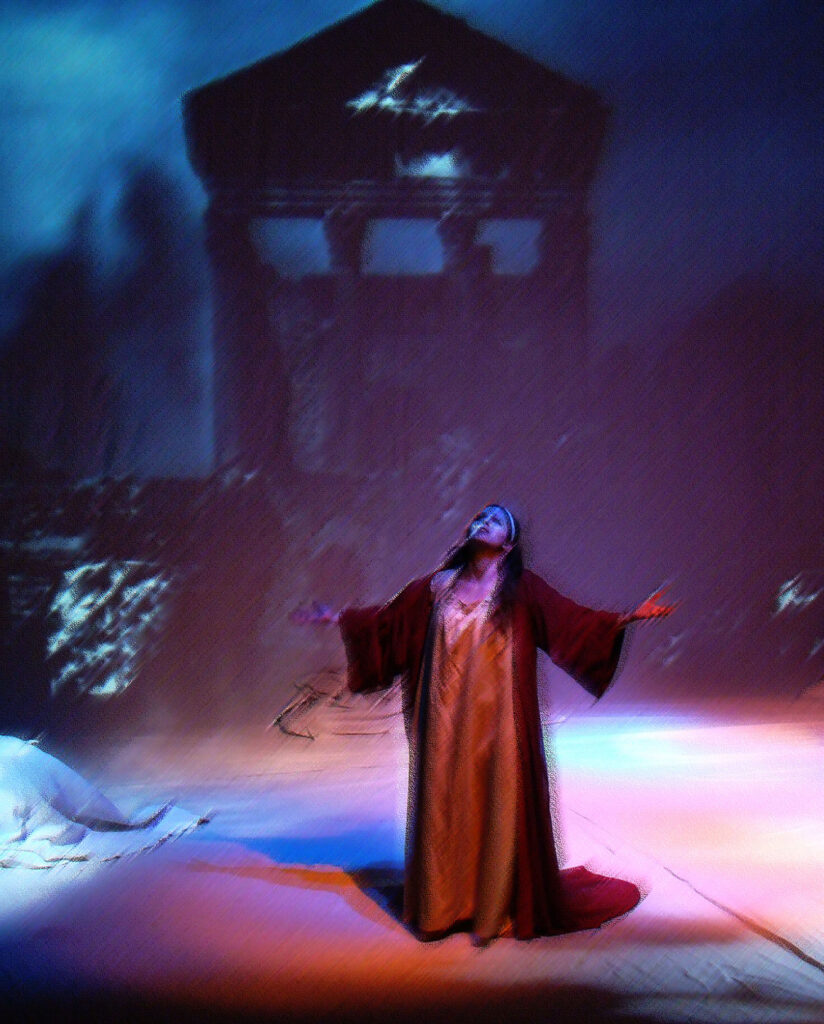
The course of the show is fast and full of life, filled with passions and conflicts. The costumes, the stage design, the video projections, the music, and the brilliant acting contribute to a integral result
The actors are professionals, as are all our other colleagues (stage & costume designers, musicians, makeup artists, prop makers) and perform the total event in English. Therefore it is certain that the audience will have no problem what so ever language-wise.
“Atreides” is not a classic tragedy as we know it, but a compilation of the most powerful scenes from well-known tragedies by Aeschylus, Sophocles and Euripides. Revolving around the heroes of these tragedies, such as Clytemnestra, Electra, Iphigenia, Orestes, e.t.c.
At the same time the performance -filled with action and conflict- will be up to date. It will combine modern elements and it shall bring the character close to today’s world and the modern day audience. The acting will be framed by video projections and constant music. The ancient and the traditional will coexist with the contemporary making this theater experience unique.
◊Everything starts with the sacrifice of Iphigenia in Avlida
Her father Agamemnon, despite her mother’s (Clytemnestra)objections.
Clytemnestra’s and Iphigenia’s moving pleas were proven fruitless. The sacrifice takes place and the Greek army departs to Troy.(Euripides: Iphigenia at Aulis)
◊The actors & projections show us the fall of Troy
We learn how the joyful, glorious news that Troy has fallen passed from mountain to mountain, lighting a beacon.
◊ Clytemnestra the Quinn, receives the news and prepares to welcome her husband “accordingly”.
Not even the ten years that have passed eased the pain that Iphigenia’s sacrifice brought to the mother. And so when Agamemnon arrives Clytemnestra murders him along with Cassandra, Priamus’ daughter, a fortune teller that already knows about the murder to come. (Aeschylus: Agamemnon).
◊ Electra mourns the loss of her father.
There Electra’s sister Chrysothemis arrives, who unlike Electra, obeys to Clytemnestra and Egisthus. The narration then informs us of the arrival of Clytemnestra at the scene, who comes to do honour her husbands grave. Electra confronts her mother, in a vengeance scene well known of it’s power.
◊ Clytemnestra departs, and Orestes comes along and we witness the revelation of Orestes to Electra. (Sophocles: Electra). Orestes, taking revenge on the death of his father, becomes a matricide. His hubris awakens the old matriarchal goddesses, Erynies, that will, from now on, haunt him. (Euripides: Orestes). The goddesses haunt him until Orestes flees for refuge to Athena’s temple in Athens. In AriosPagos court the votes are halved, so Athena votes for Orestes, thus saving his life. (Aeschylus: Eumenides).
Text synthesis-Direction NIKOLAS KAMTSIS
Stage and Costume Design MIKA PANAGOU
Music KOSTAS HARITATOS Video TOPOS ARTE Light design GIANNIS ZERVAS
Performed by
DIMITRIS NIKOLOPOULOS,ANTA KOUGIA, LAMPRINI THANOU, PANAGIOTA CHAIDEMENOU

